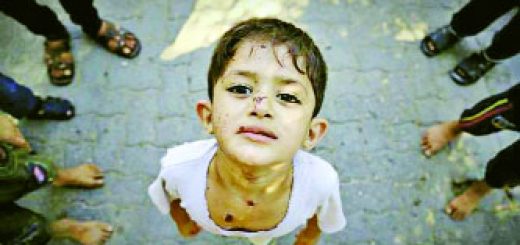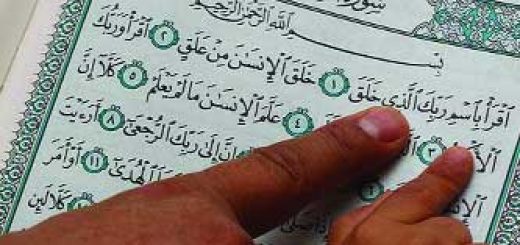Being A Modern-Day Teacher – Fahmida Mehreen
 Education according to bookish definition means, “The process of receiving or giving systematic instruction, especially at a school or university.” However, in practical terms, education has a vast meaning. Education helps a person shape his or her life from early childhood to till his or her last days. There are neither any specific age brackets for education nor any specific form of institution that can provide one with education. It is a dynamic process and the progression is ever changing.
Education according to bookish definition means, “The process of receiving or giving systematic instruction, especially at a school or university.” However, in practical terms, education has a vast meaning. Education helps a person shape his or her life from early childhood to till his or her last days. There are neither any specific age brackets for education nor any specific form of institution that can provide one with education. It is a dynamic process and the progression is ever changing.
In today’s modern world, education has reached a different height. It not only succumbs itself within the bookish knowledge, but also gives practical life lessons to pupils, depending on age groups and other factors. Globally, schools and colleges have adopted active teaching and learning techniques that motivates the students to be more involved in the leaning process. “Students! Open chapter 2, page 5. Today we will do nouns. Nouns are naming words…” – this conventional process of teaching is now age old. Instead of telling the students that nouns are naming words, they are demonstrated with elements like chairs and tables and taught that these are things and what they are called is noun. This was just one example; there are countless examples like this.
Besides the teaching techniques, the schools with international standards all across the world have upgraded itself with extra facilities like swimming pools, after school clubs like sports clubs, art and handwork clubs, cooking clubs, dancing clubs, and the list can go on and on. Students are encouraged to develop their skills not only academically, but in other fields as well. That is why such activities are no longer called “extra-curricular activities”, but instead it is called “co-curricular activities” because they are of equal importance as classroom learning. Students take part in different types of competitions and earn fame for themselves, as well as for their parents and for their schools. Their recognition does not always stay confined within their countries, but gets acknowledged internationally.
When comparing with this vigorous change in the education system, it can be said that the schools in Bangladesh, particularly the English medium schools, have embraced many of these features and attributes to make their students future-ready and to be able to nurture them as global citizens through their intellectual abilities and skills. International schools in the capital such as American International School Dhaka (AISD), International School Dhaka (ISD), Australian International School (AusIS), Canadian International School, etc. had adopted many of the stated components since inception in order to maintain their global standards. Nonetheless, these schools are among some of the most expensive schools and are availed by a niche class of people. Coming to more affordable and mid-level schools in Dhaka and in some other metropolitans like Chittagong, the English medium schools are adopting the latest curriculum and teaching techniques for their students. Not all of them have swimming pools and large indoor halls, but their classrooms and teaching aids have definitely developed. Students are taught through smart boards, shown illustrations and videos on projectors and are given team and pair activities in class which help them to develop their aptitude level. Students are motivated to use libraries by keeping separate class time for library work where students are allowed to borrow books of their choice each week and return it back the following week.
Being a teacher in one of the well-acclaimed English medium schools in Dhaka, it is my observation that in today’s teaching world, the responsibility of a teacher is far more than what it used to be when we were in schools decades ago. This is because students are expected to learn at school and the earlier trend of giving bulks of homework has come to an end. Therefore, the volume of teaching elements along with the added tasks like doing classroom activities have put the teachers on a stronger but compelling footing. Teachers must ensure that all children are being able to catch up with what is being taught and can be able to exhibit it through their class-works and assessments such as unannounced marking class-works and class tests. Usually, during recent times, term exams like half-yearly exams and final exams start after middle school i.e. from class/grade five. Till then, students are assessed on reading, writing, listening and classroom participation through works done in regular classes. Limited amount of homework is sent infrequently just so that the students do not get completely disconnected from school tasks once they go home. Regular practice works, revisions works and correction works are done in classrooms through effective lesson planning so that the students can develop their shortcomings and mistakes in class under the keen supervision of the teacher.
 Nowadays, it is not a one-way communication with the students where the teacher gets to speak only. Classes are made participative and interesting through innovative activities like “Student Search” where students are asked about their prior knowledge of a topic, “Tarsia” which is like a jigsaw puzzle, and many more of its kind is executed as classroom activities. Furthermore, feedbacks from students regarding their opinion on school, teachers, facilities, etc. are also taken from time to time. Regular meetings with parents are held through Open Day or Orientation Day at the beginning of each academic year where the parents get to know the teachers and share their expectations and other information of need with the teachers. Parents-Teachers Meetings and Report Cards days are also held. Along with these, there may be special consultations with parents, both on parents’ request as well as teachers’ request for academic or non-academic issues. Students with special needs are attended by teachers with extra care and different teaching approach, as applicable, is applied so that he or she does not have to stumble in the process of coping up with other children. Under certain circumstances, Shadow Teachers/Assistant Teachers are appointed to help the special child do his or her task. This is something worth praising that the schools are practicing differentiation technique and not treating all the students in the same manner like a herd because every child is different. But, if supported and catered for suitably, every one of them has high potentials of their own.
Nowadays, it is not a one-way communication with the students where the teacher gets to speak only. Classes are made participative and interesting through innovative activities like “Student Search” where students are asked about their prior knowledge of a topic, “Tarsia” which is like a jigsaw puzzle, and many more of its kind is executed as classroom activities. Furthermore, feedbacks from students regarding their opinion on school, teachers, facilities, etc. are also taken from time to time. Regular meetings with parents are held through Open Day or Orientation Day at the beginning of each academic year where the parents get to know the teachers and share their expectations and other information of need with the teachers. Parents-Teachers Meetings and Report Cards days are also held. Along with these, there may be special consultations with parents, both on parents’ request as well as teachers’ request for academic or non-academic issues. Students with special needs are attended by teachers with extra care and different teaching approach, as applicable, is applied so that he or she does not have to stumble in the process of coping up with other children. Under certain circumstances, Shadow Teachers/Assistant Teachers are appointed to help the special child do his or her task. This is something worth praising that the schools are practicing differentiation technique and not treating all the students in the same manner like a herd because every child is different. But, if supported and catered for suitably, every one of them has high potentials of their own.
This is the scenario of the classrooms and the role of teachers. Coming to the students, the digital era and modern facilities of the schools have made the students far smarter than what you and I probably used to be at their age, courtesy to technology. However, no level of technology can teach manners and proper behavior to children. The ethics and morals have to be taught first at home, then by the teachers at schools. Children will be naughty and witty; no doubt! In fact, at times their sharpness can be evaluated through their amusing and clever actions. But it is a must to ensure that these clever actions are controlled in a reasonable manner so that it does not go out of hand and starts to harm others including rude and rough behaviors with classmates and juniors and being ill-mannered and disrespectful towards their teachers. Students must always be reminded gently but firmly, that they are allowed to have fun and amusement under a regulated situation, but under no circumstances they are allowed to be outrageous or disgraceful towards anyone in school or outside. They must learn that being a good and smart student is not all in life; it is important to be good humans with empathy and humility to be successful in life.
Life of a teacher can be challenging. Preparing detailed lesson plans, having control over classrooms, delivering lectures and getting the best out of the students and then reassuring the parents that their child is in good hands are not easy. But at the end of everything, if you know that you have incepted one positive thought in at least one student which shall remain with him or her for the rest of his or her life, that is an accomplishment. And, that is all it takes for a teacher to be happy and successful.
Closing with best wishes for all my students and all the children out there for whom a bright future is awaiting!















Recent Comments